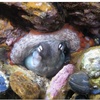
Help scientists track how sea life respond to climate change
A recent article in The Conversation detailed how Redmap volunteers are helping scientists track movements in marine species around Australia's vast coastline. Read the article here.



A recent article in The Conversation detailed how Redmap volunteers are helping scientists track movements in marine species around Australia's vast coastline. Read the article here.
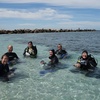
More than 20 Redmap Champions will now wear the Redmap t-shirt and help promote the project to fishers, divers, boaters and the community throughout Western Australia!
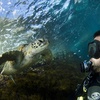
Warming seas and the migration of species will change the marine environment on our doorstep, according to Queensland researchers. Read more in the Sunshine Coast Daily.
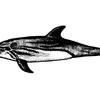
DOLPHIN WATCH in WA gathers community observations of one of the Swan Canning Riverpark’s most iconic species: the Indo-Pacific bottlenose dolphin (Tursiops aduncus). Read about this fantastic citizen science project at Science Network WA.
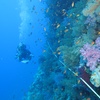
A new study by University of Tasmania researchers and international collaborators has found that a key element of future changes in the distribution of marine biodiversity resulting from ocean warming is not as closely related to local warming rates as previously assumed. Read more in the University of Tasmania News.
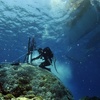
A team of marine scientists have discovered that WA's coral reefs contain weather maps going back hundreds of years. The scientists, from the University of WA and Curtin University, drilled into giant porite corals on Ningaloo Reef, the Abrolhos Islands and Rowley Shoals to find the marine weather data. They discovered that the core samples were able to tell them what causes marine heat waves among WA's unique coral reefs. Read …
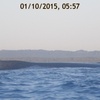
SWIMMING with humpback whales is set to become WA’s newest must-do experience, with the State Government giving the go-ahead to a trial at the Ningaloo Marine Park. Building on the success of whale shark tourism, the humpback whale tours will be offered to 11 licensed operators at Exmouth and Coral Bay next year. WA’s humpback population is back to pre-whaling numbers, with more than 30,000 whales – which grow up to …
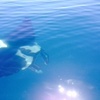
Who wants to be a manta ray scientist? Project Manta's team will be giving a presentation this Friday in Exmouth! Please come along to find out about the research and how you can get involved. Where: Novotel Ningaloo Resort Exmouth and When: 30th October, 7pm #projectmanta #citizenscience Check out the Project Manta on Facebook.

Fancy yourself a bit of an artist? Check out the latest Redmap marine design competition.... (Closes November 5th 2015)
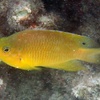
THE Ambon damsel (Pomacentrus amboinensis) have been found to need exposure to the natural environment to develop the ultraviolet (UV) facial markings reef fish use as a covert communication system to potentially avoid predators. Read more at Science Network Western Australia.